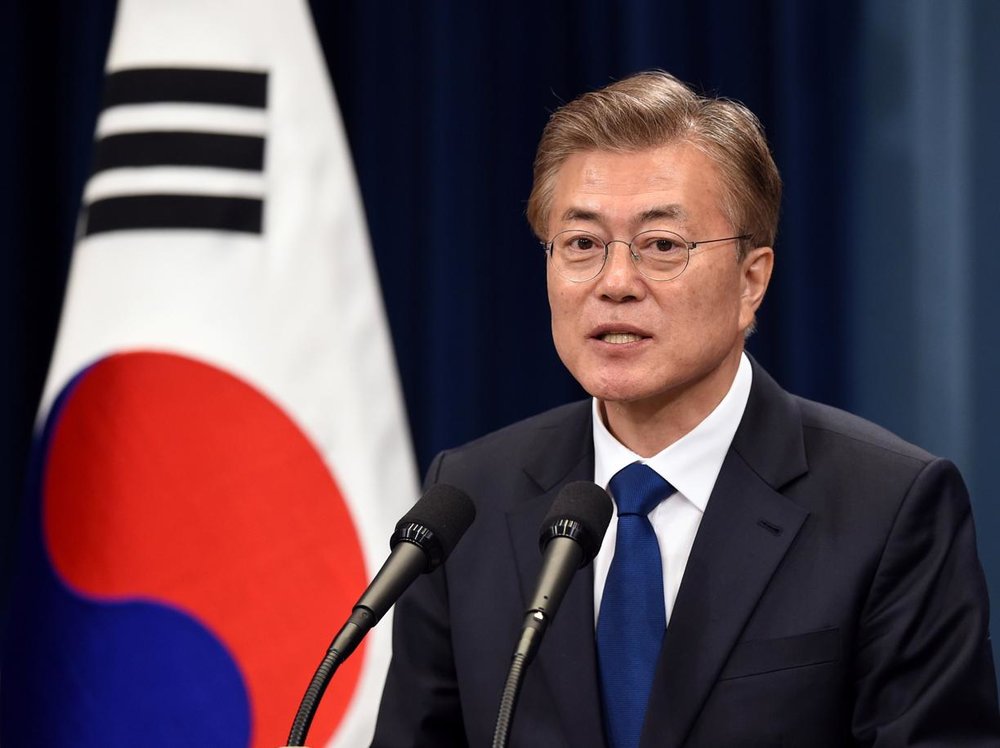Trump's North Korea policy just got more complicated

The Trump administration claims it’s considering all options, including military force, to restrict and reverse North Korea’s nuclear-weapons program.
It has promised to apply “maximum pressure” on Kim Jong Un’s government by, among other things, ratcheting up sanctions, pressuring China to cut off economic support to the North, and rapidly installing the THAAD missile-defense system in South Korea. One slight problem with this plan is that North Korea’s neighbor, a U.S. ally for more than six decades, just chose a leader who opposes much of it.
Much of it, but not all of it: Moon Jae In, the winner of South Korea’s presidential election on Tuesday, agrees with the American president that North Korea’s expanding nuclear arsenal constitutes a grave threat. Moon, like Donald Trump, believes sanctions on the North should be maintained. Like Trump, he’s willing to talk directly with Kim Jong Un.
But they diverge on the sequencing. The Trump administration advocates isolating North Korean officials so that they’ll be forced to make concessions ahead of negotiations. Moon, by contrast, favors outreach right away, so long as North Korea doesn’t carry out major acts of aggression.
Sunshine Policy
As the chief of staff to former President Roh Moo Hyun, Moon helped implement the “Sunshine Policy,” an effort from 1998 to 2008 to woo North Korea with humanitarian assistance, diplomatic dialogue, cultural exchanges, and increased economic relations. Moon now wants to bring back the Sunshine Policy. He’s proposed reopening an industrial park and tourist destination jointly run by North and South Korea, as a first step in the gradual economic and political “unification” of the peninsula.
Moon has also criticized the U.S. military’s hurried installation of a missile-defense system in South Korea in recent weeks, scoffing at Trump’s suggestion that the South Korean government pay $1 billion for the system and calling for a thorough review of the deployment. (One of Moon’s motivations here might be his desire for better relations with China, which suspects that THAAD could be used to undermine the Chinese military’s capabilities. South Korea is caught between China, its most important trading partner, and the United States, its most important military partner.)
And Moon has responded sharply to repeated hints by the Trump administration that it may launch military strikes against North Korea’s nuclear program — strikes that could prompt the North to use artillery, chemical weapons, or even nuclear weapons against South Korea. “I want to say it sternly. Military action on the Korean peninsula cannot happen without Korea’s consent,” Moon wrote in April. He has argued that South Korea, as the country most squarely in North Korea’s crosshairs, should “take the lead on matters in the Korean Peninsula,” and that the United States and China should follow that lead.
These differences probably won’t upend U.S.-South Korean cooperation on North Korea. The alliance has weathered previous disagreements between the White House and the Blue House, including a period when George W. Bush pursued policies that resemble Trump’s and two South Korean presidents (one of them was Moon’s former boss) supported policies that mirror Moon’s.
But Moon’s election probably will constrain Trump’s options on North Korea, making the use of military force and the wholesale economic and diplomatic isolation of Pyongyang less likely. Trump may be boxed into the lengthy nuclear negotiations with North Korea that the Chinese government and South Korea’s new leader prefer.
Trump’s defense secretary, James Mattis, likes to say that war isn’t really over until the enemy says it’s over — that “the enemy gets a vote.” What Mattis and Trump might learn in the coming months is that allies get a vote too.
(Source: The Atlantic)
Leave a Comment